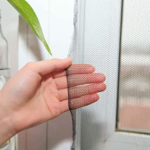 I was driving along with Lydia the other day. We were heading to one of my doctor’s appointments. I was looking out the window and something caught my eye. Everyone was driving along, walking, shopping, doing business, and so forth, just like before Covid-19 exploded on the world. I looked down at my knees, where I had my reMarkable Tablet, my cell phone, and my mask. I turned to Lydia, to see her driving the car, while wearing her mask. And, I thought about the contrasts here. On the inside of the car we were prepared for dealing with a virus-infected world, while outside the car, people seemed to be living a normal life. As I thought about this, I considered the effect on us mentally and emotionally.
I was driving along with Lydia the other day. We were heading to one of my doctor’s appointments. I was looking out the window and something caught my eye. Everyone was driving along, walking, shopping, doing business, and so forth, just like before Covid-19 exploded on the world. I looked down at my knees, where I had my reMarkable Tablet, my cell phone, and my mask. I turned to Lydia, to see her driving the car, while wearing her mask. And, I thought about the contrasts here. On the inside of the car we were prepared for dealing with a virus-infected world, while outside the car, people seemed to be living a normal life. As I thought about this, I considered the effect on us mentally and emotionally.
We are all going about our lives living just behind an invisible curtain of danger. I say invisible, because for many persons they live like there is no virus at all, while others live with the possibility of personal danger on a daily basis. Especially, now that we have learned that it is the elderly who are more likely to get the virus and die from it. Younger people have begun to ignore many safety considerations, while the youngest among our population have acquired the least fear of the danger posed by Covid-19. What have been the results? People in general have taken on a more cavalier approach to “the bug” and expect others to agree with their opinion. This off-hand, casual, regard to the virus has become prevalent even in the care units, hospitals, and clinics that the elderly are forced to visit, because you cannot do a physical on a patient over Zoom.
Though you will find markings on the floor telling people to “stay six feet apart,” and signs on the wall warn people the “This business requires persons to wear a mask to enter,” yet the Doctor’s assistants, nurses, PA’s, and the doctor’s themselves, will still casually touch you (and sometimes, even without gloves on). This is also prevalent among general businesses. In many places, the employees will wear masks, only because it is required by the owners or managers, but the masks hang below their noses, are quite loose, and/or the employee will constantly rub, scratch, or pull at their mask, contaminating it. What does this mean? What can we read into this behavior? Is anyone really taking the danger seriously?
A Mental and Emotional Pandemic
Psychology Today, in an article titled, “The Mental Health Toll of COVID-19, Some American communities carry a disproportionate burden” (Posted Nov 24, 2020), they state that “A recent Kaiser Family Foundation study suggests these fears were realized, with one in four adults ages 65 and older reporting anxiety or depression in the months between the start of the pandemic and August—a rate substantially higher than the one in 10 older adults who reported depression or anxiety in 2018.” But, it was the effect on the younger population that surprised them more was, “A CDC study shows that while 40 percent of Americans are now grappling with at least one mental health or drug-related problem following the pandemic, young adults have been hit harder than any other age group, with 75 percent struggling. Even more alarming, was the finding that one in four young adults, age 18-24, had contemplated suicide over a 30-day period in the summer. While official figures are slow to roll in to confirm an increase in suicides among younger Americans, anecdotal reports from coroners and medical examiners suggest significant spikes in suicides across the country, in children as young as 9 years old.” The question here is this, “Is the danger of the virus real and existing, or is the scare over and we can get back to things the way they were.
Even within the church, the dichotomy exists. Pastors and church leaders want to get back to things as usual as quickly as possible. The church has taken a hit financially, during this period, like never before. Scott McConnell, executive director of Nashville, Tennessee-based LifeWay Research, which conducts surveys and research for Christian ministries, said something along the same lines. “It would not surprise me at all if 5% of churches close over the next year, McConnell said.” Some pastors and church leaders have chosen to ignore some considerations due to the loss of finances during the pandemic because they are too aware of the possibility of closing down the church for good. The result in all of this has become what I term the invisible curtain.
The Invisible Curtain
This term means to me the idea where someone wants something to not be true so badly that they choose to ignore real evidence just so that their own perspective will seem more credulous. They do not want to believe the truth so much so that they choose not to see the facts, therefore “invisible.” I also called it a curtain, because it reminded me of when I was a child. Several of us had to sleep in the same room due to financial circumstances. So the way someone could get their own “room,” was to hang up a blanket, sheet, or curtain, to divide the room. A sheet does not truly separate a room, but because a curtain is hanging there, everyone pretends there is a real separation.
Well, that invisible curtain exists today. Those who are still taking the threat of Covid-19 seriously, live on one side of the curtain. They can see the very real dangers to ourselves and others. They pay attention to the reports that say so. They have read about the many deaths that have resulted from the virus. And, they know, in many cases, of people who have gotten the virus, and in some cases, others who have died due to it. They live on one side of the curtain, and we look over it at the way the other people live.
Those on the other side, may have gotten the virus, but are asymptomatic, or they lived through it, or just have not been physically touched by it. So, in their mind, the whole thing is a joke, a trick of the government, nothing worse than the flu, or just a figment of someone’s warped imagination. Therefore, they choose to go about their life as though Covid-19 does not exist or is no longer a problem, and they snub their noses at those who still react to the virus as some real danger. These are the people who push for opening everything right now, stop wearing masks (regardless of effectiveness or not), and let’s allow people to huddle in crowded places like we did before. It is sort of like, “If the virus can’t hurt me, then I don’t care if it might hurt you.” COVID has brought out qualities in us, in some cases bad, that many of us do not want to recognize in ourselves. Some have raised curtains that lack compassion and mercy, consideration for the weaker among ourselves, and those who are still struggling emotional and mental anxieties over this viruses’ impact on our lives.
On Which Side Are You?
What is the opposite of being inconsiderate? Being merciful and compassionate. The Lexham Theological Wordbook describes these words in this manner, “Mercy and compassion denote care, concern, and empathetic feeling for another person. In the Bible, mercy and compassion are most perfectly demonstrated and characterized by God’s own merciful and loving care for his people, and in particular by the gift of mercy through Jesus Christ.”
People who feel just fine moving about in today’s world need to find within themselves enough mercy and compassion to recognize the real feelings of danger for the people on the other side of the curtain. Whether or not the dangers of COVID are as the government, the scientists, the doctors, or the statistics say, to those people on the other side of the curtain, they are real. Our compassion for those people must be real as well. We must have mercy for those who drive along to their doctor’s appointments, or to the drug store to get their medications, or to their local grocery store where they will have to come in contact with people who do not care about them. We cannot control what others do, but we can control what we choose to do.
You can demonstrate to everyone around you on which side of the curtain you believe you are, by nothing more than a simple act of:
- disobeying the laws and requirements regarding masks.
- disregarding social-distancing.
- reaching out to shake someone’s hand.
- treating all those people who still feel danger from COVID as “sheep,” because they “are so dumb” and you are so “smart.”
How does God feel about all of this?
God wants you and me to have compassion for the people on both sides of the curtain. For those on the side where they see the danger, God wants you and me to show mercy and be compassionate enough not to treat their fears as childish, irrelevant, stupidity, or imagination.
- Seeing the people, He felt compassion for them, because they were distressed and dispirited like sheep without a shepherd. – Matthew 9:36
For those who live on the side of the curtain where they act as if there is little to no real danger, God wants us to understand that they are likely just hiding their real fears behind proud and boastful actions and language.
- But He, being compassionate, forgave their iniquity and did not destroy them; And often He restrained His anger And did not arouse all His wrath. – Psalms 78:38
God wants all of us, as His representatives on this planet, to demonstrate His heart to all people on both sides of the curtain. He wants them to be able to see that there is a third group, those who trust in the Lord.
- So, as those who have been chosen of God, holy and beloved, put on a heart of compassion, kindness, humility, gentleness and patience. – Colossians 3:12
The Third Side
In Joshua, chapter 5, verses 13 to 15, we read of an encounter by Joshua with an Angel. Joshua noticed a man standing a short way from where he was and that man had his sword drawn. Usually this means danger, but that will depend on which side of the “curtain” you believe you are. When Joshua approached the man, he challenged him by asking, “Are you on our side or on the side of our enemies? The angel responded by stating that he was on neither side, but that he was on God’s side. To Joshua there were only two sides, as best as he could see. But, this encounter with the angel of God opened his eyes to recognize that there was one more side. So, regardless of whether you find yourself feeling as though on one side of the curtain other the other, do not forget that you are actually on the third side, God’s side.





